SECONDARY NEWS
From the Assistant Principal
Miss Kim Bailey
kbailey@arm.catholic.edu.au
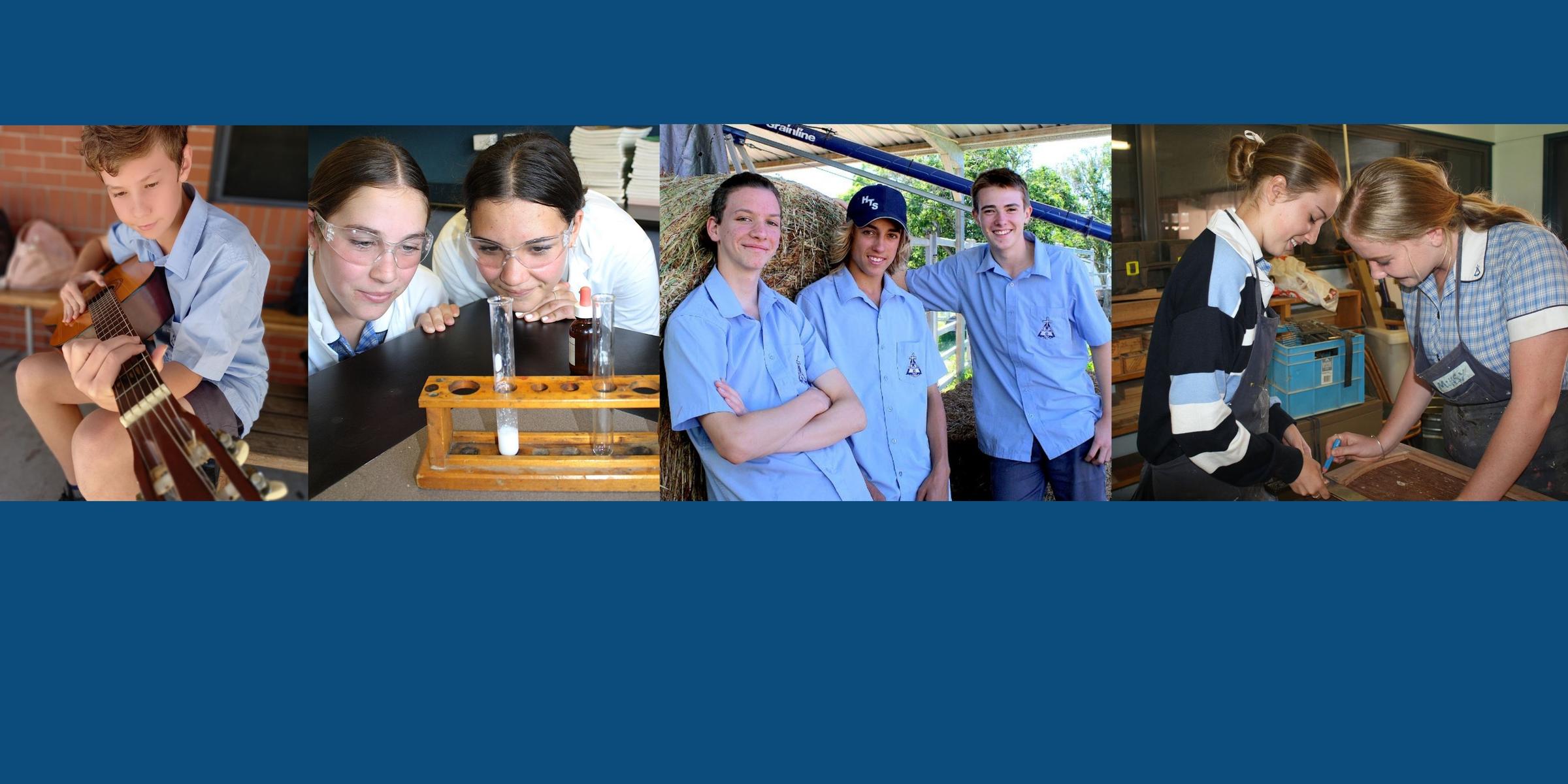
SECONDARY NEWS
From the Assistant Principal
Miss Kim Bailey
kbailey@arm.catholic.edu.au
New students will soon receive invitations for the welcome barbeque that will be held prior to the first school social for 2024 on Thursday 29 February. The barbeque will take place in the Secondary Library Quadrangle, commencing at 6.00 pm. The Secondary staff are looking forward to meeting as many of the new families as possible. Please return the reply slip so that catering arrangements can be finalised.
A social for all secondary students will be held on Thursday 29 February. The Secondary staff will be supervising the social. It commences at 6.30 pm and finishes at 8.00 pm. As usual, we expect that students will be dropped off and picked up by parents. The collection area is in front of the Science Labs.
It is a busy week for the members of the Holy Trinity Show Team as they put the finishing touches on their animals in preparation for the Inverell Show this weekend. For several students, this is their first show experience. The team are to be congratulated for their efforts in training and preparation. We look forward to receiving the reports next week from Mrs Townsend.
Photos from the Glen Innes Show
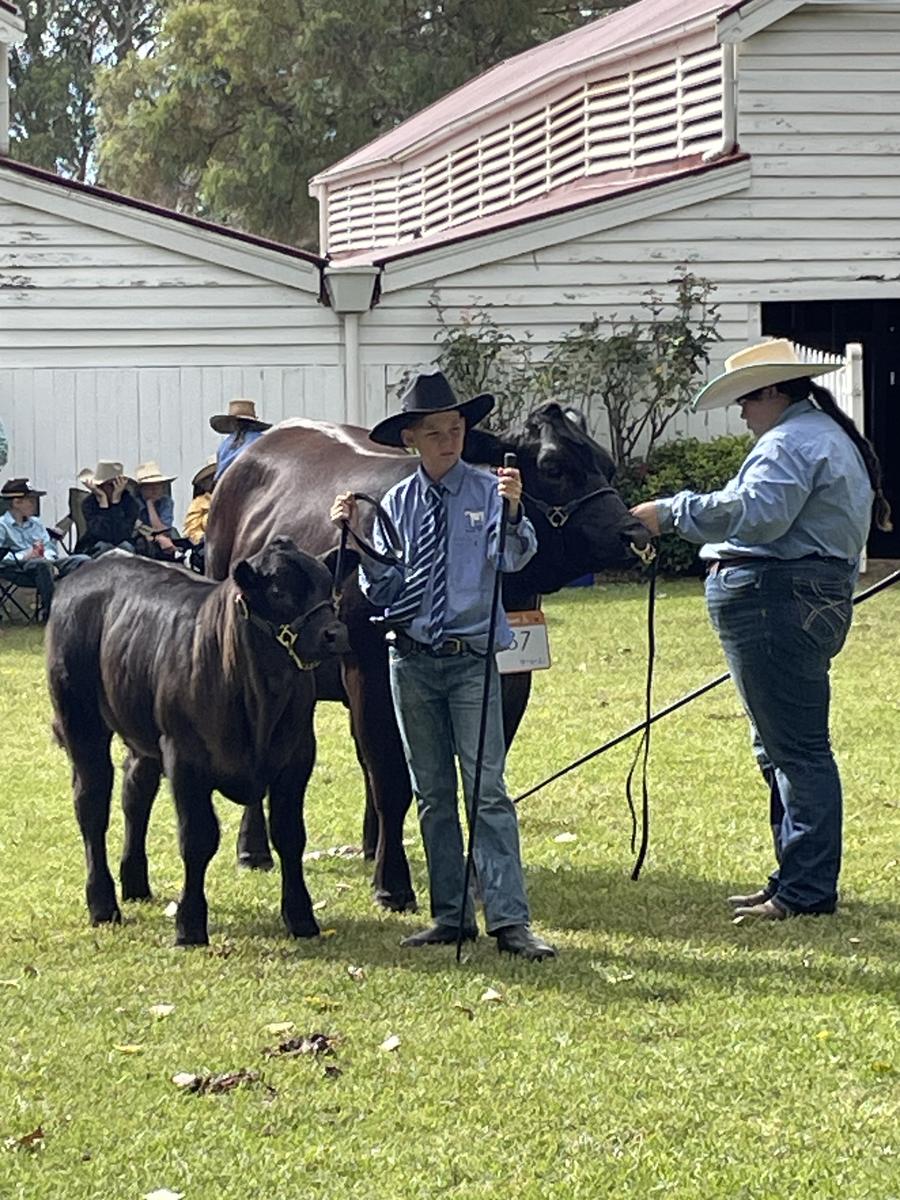



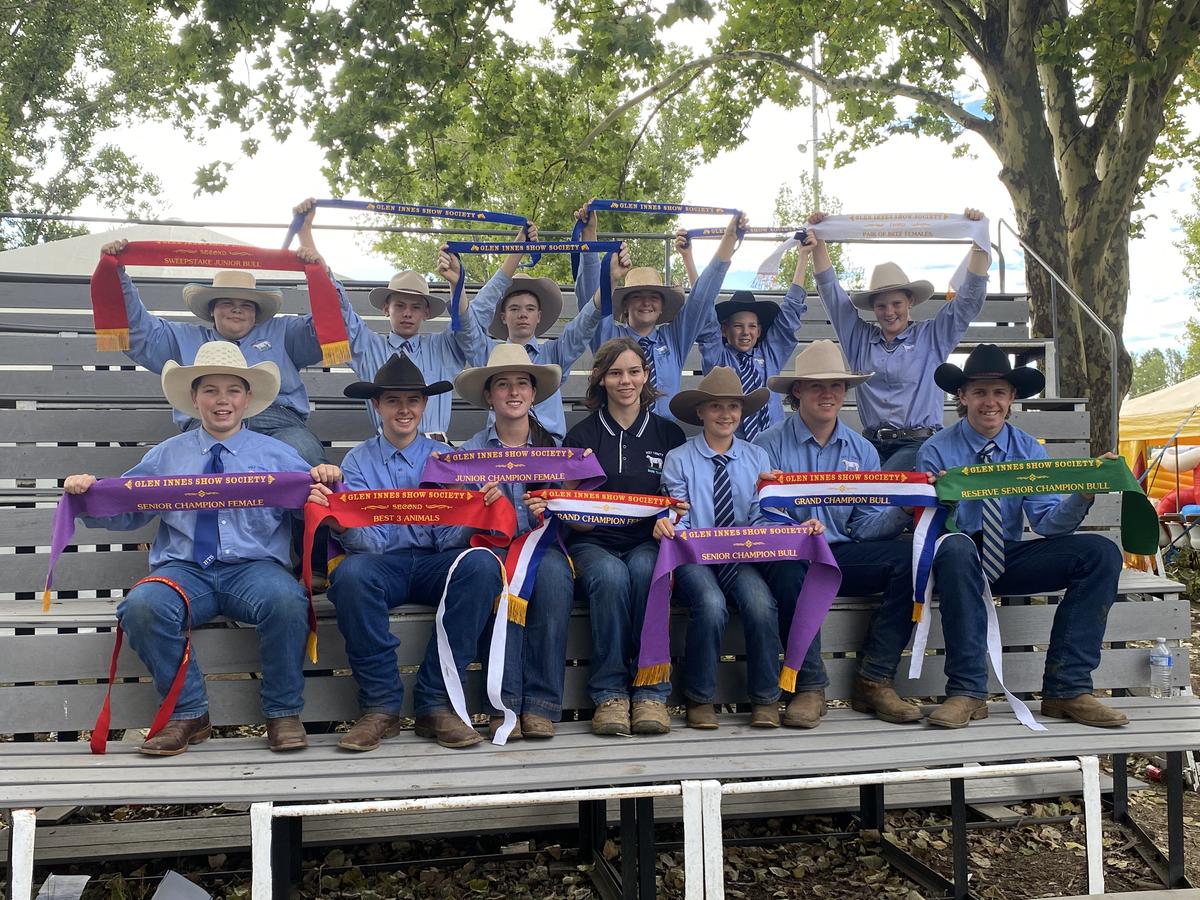













Year 8M Visual Arts and Miss Cush will be heading to Lake Inverell this week to work on their drawing skills.
Year 8M have been learning how to draw chasms like Mandy Martin, their focus artist for the term.
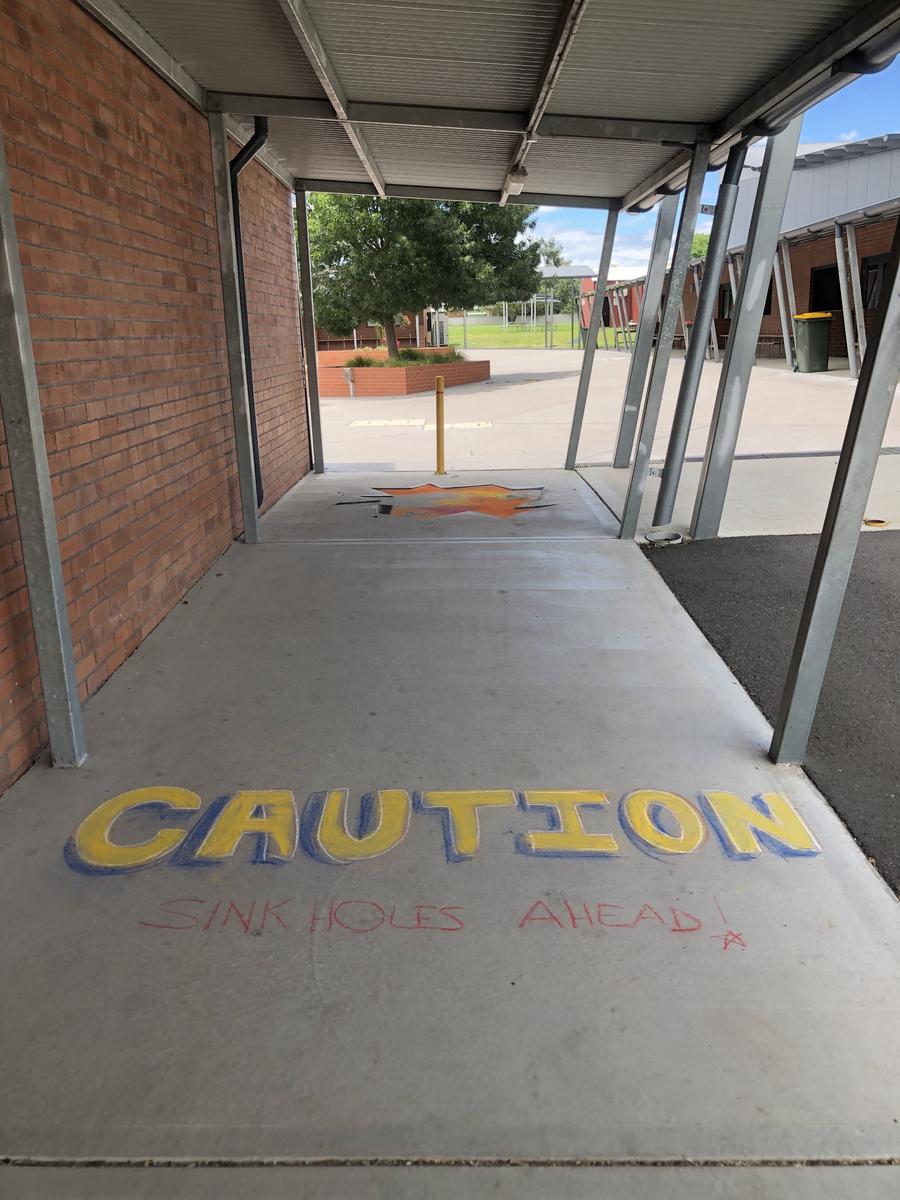
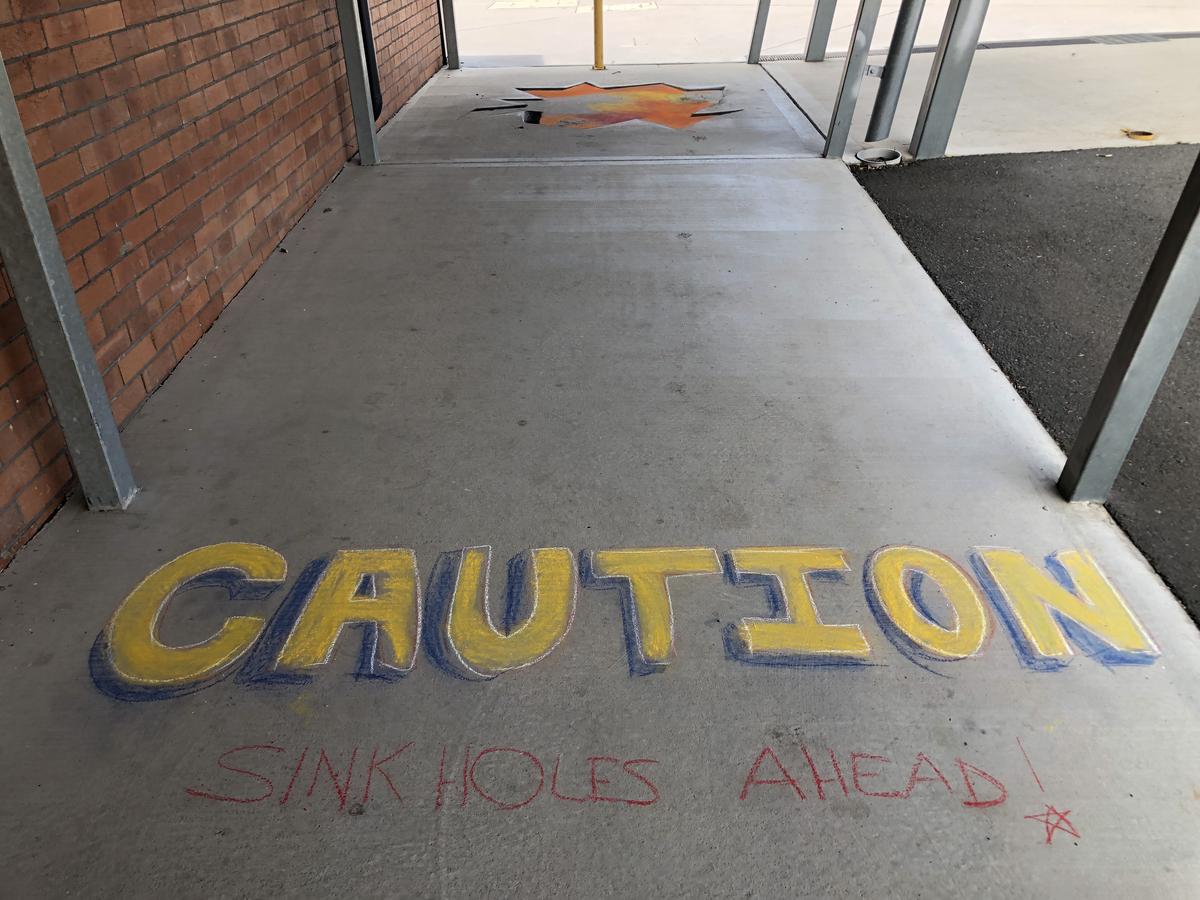

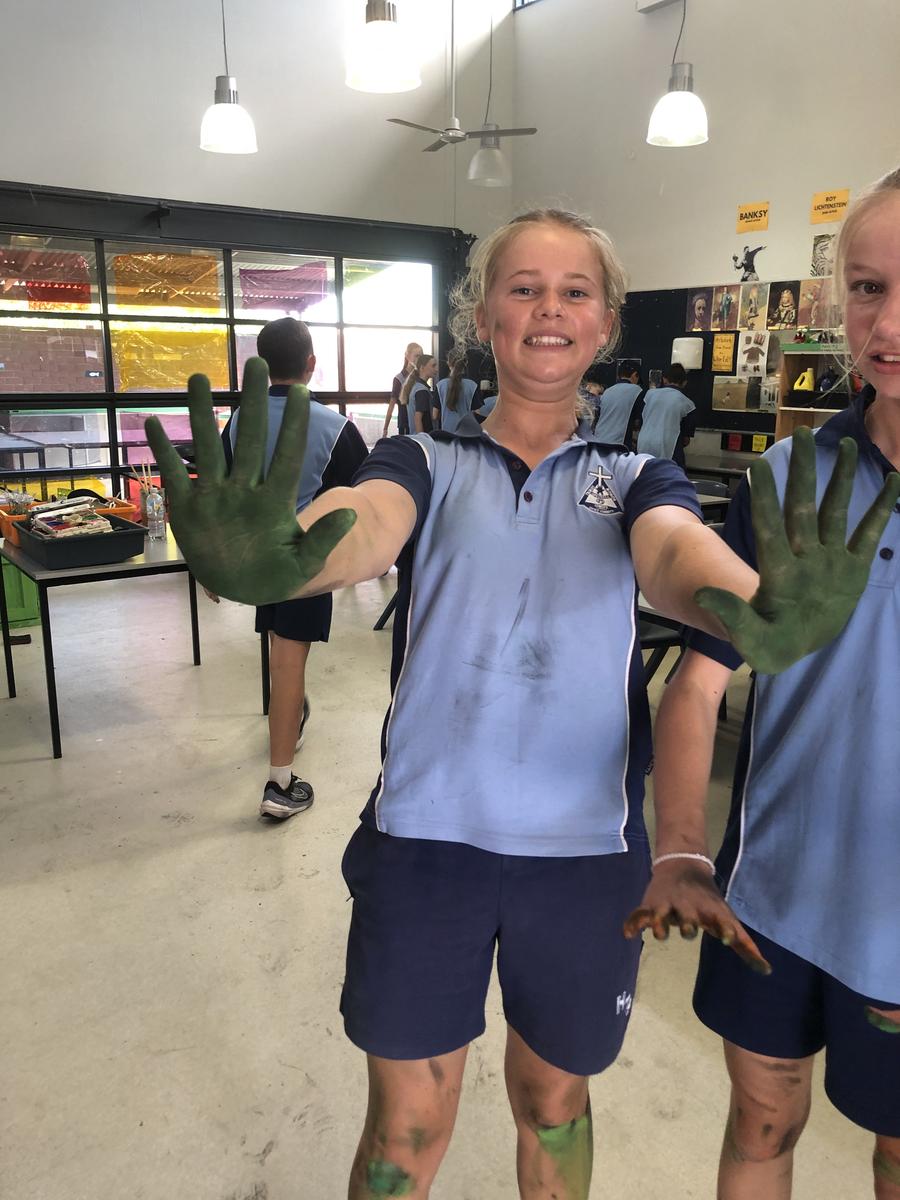
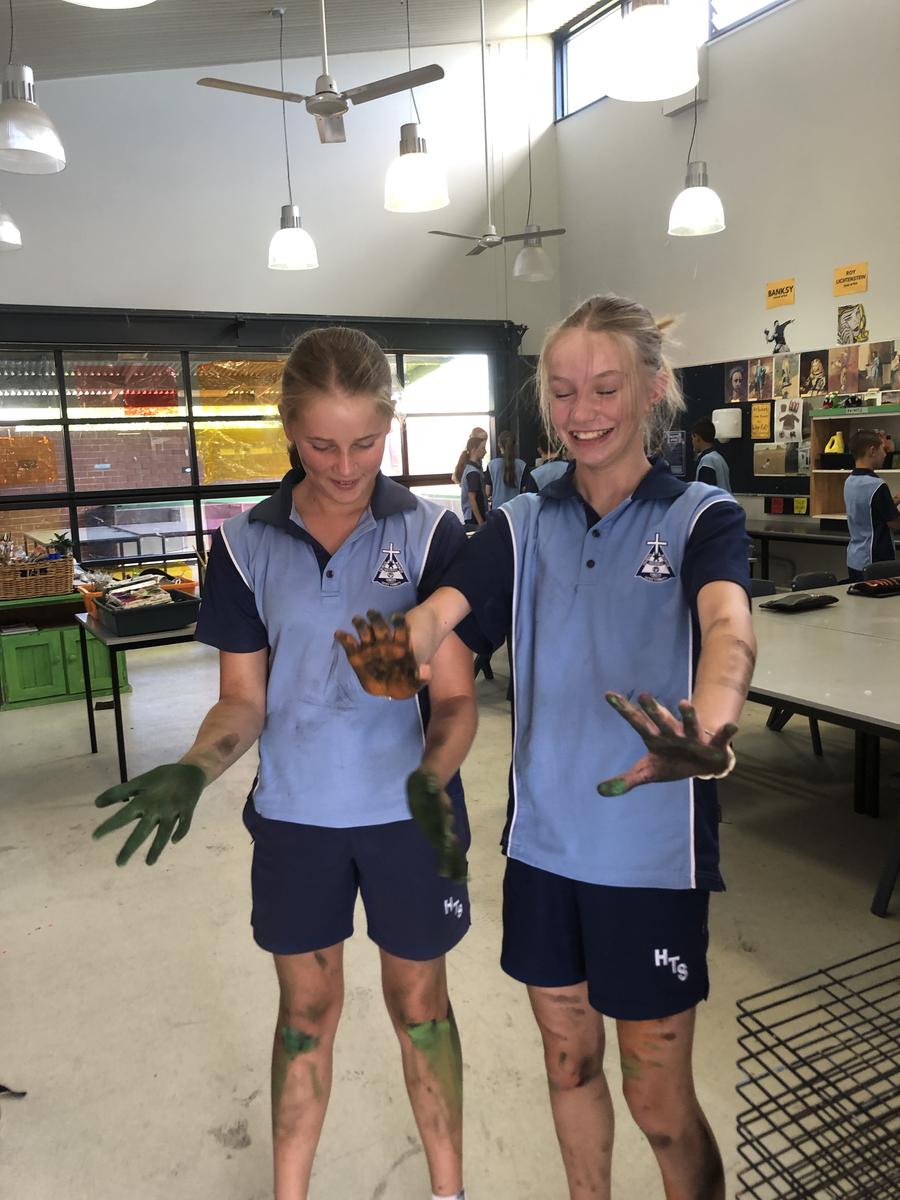
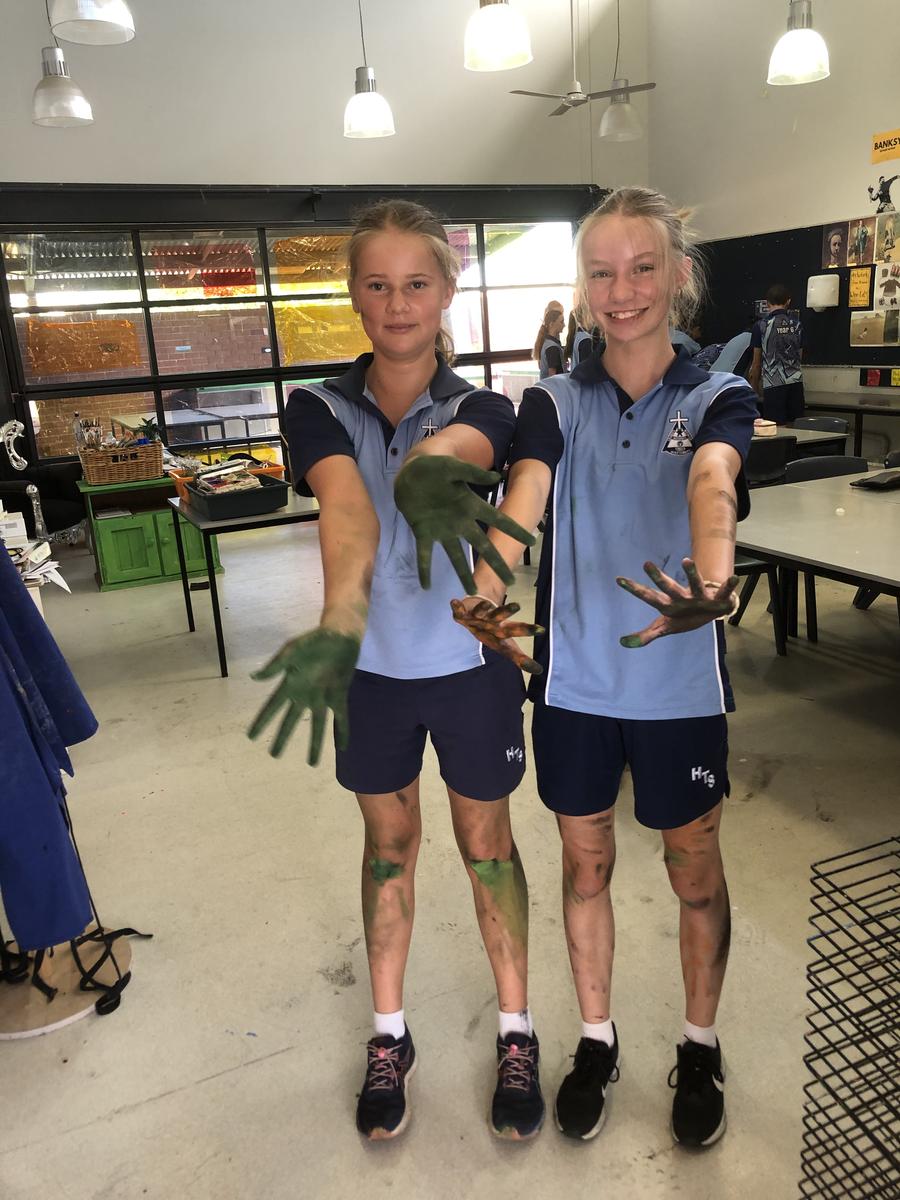
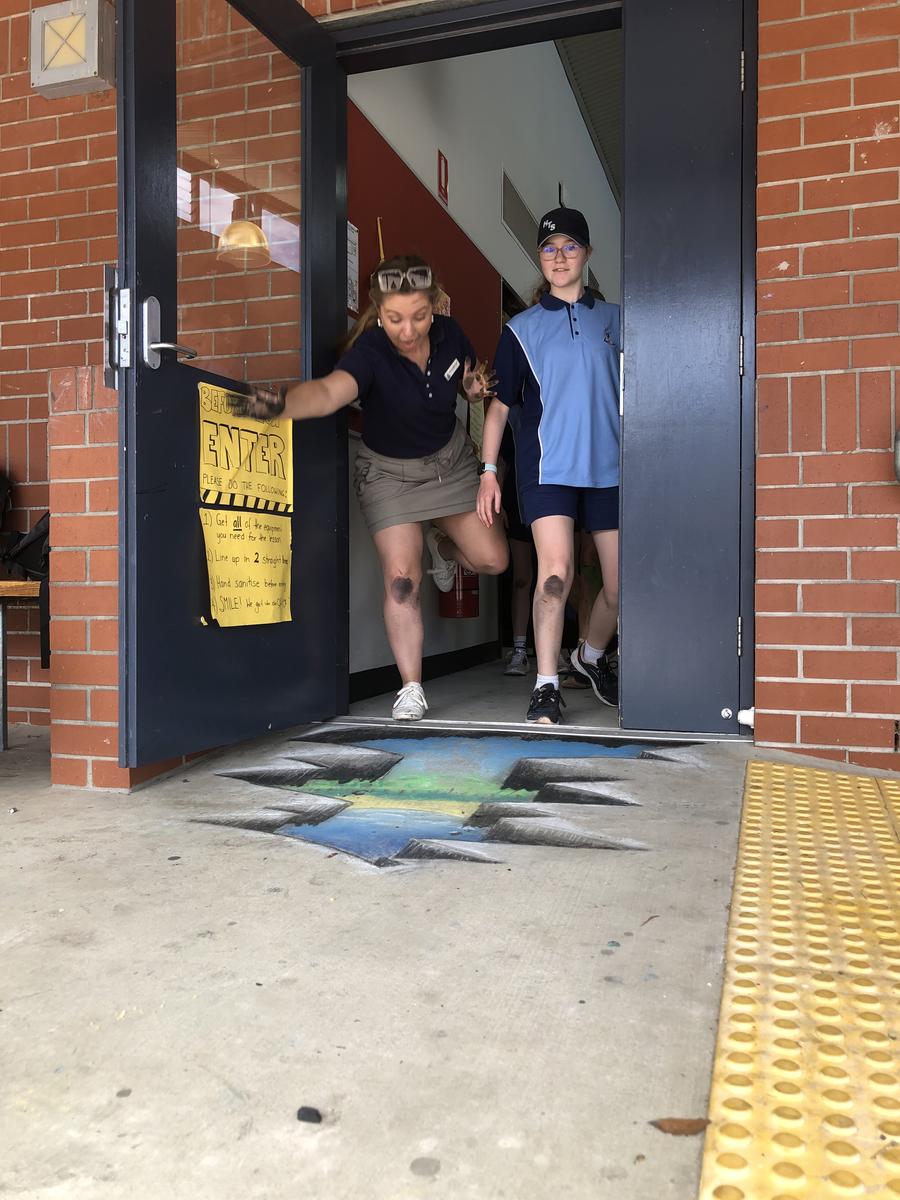
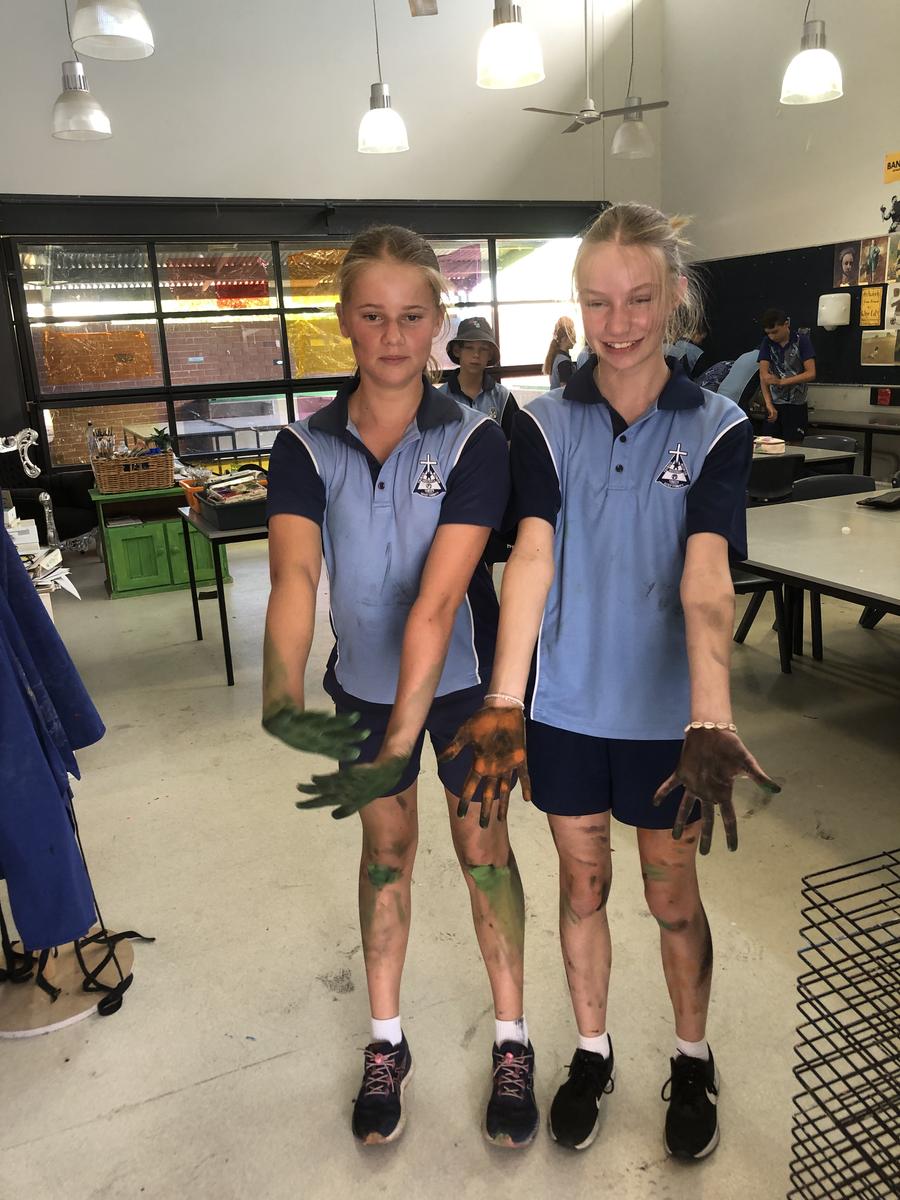


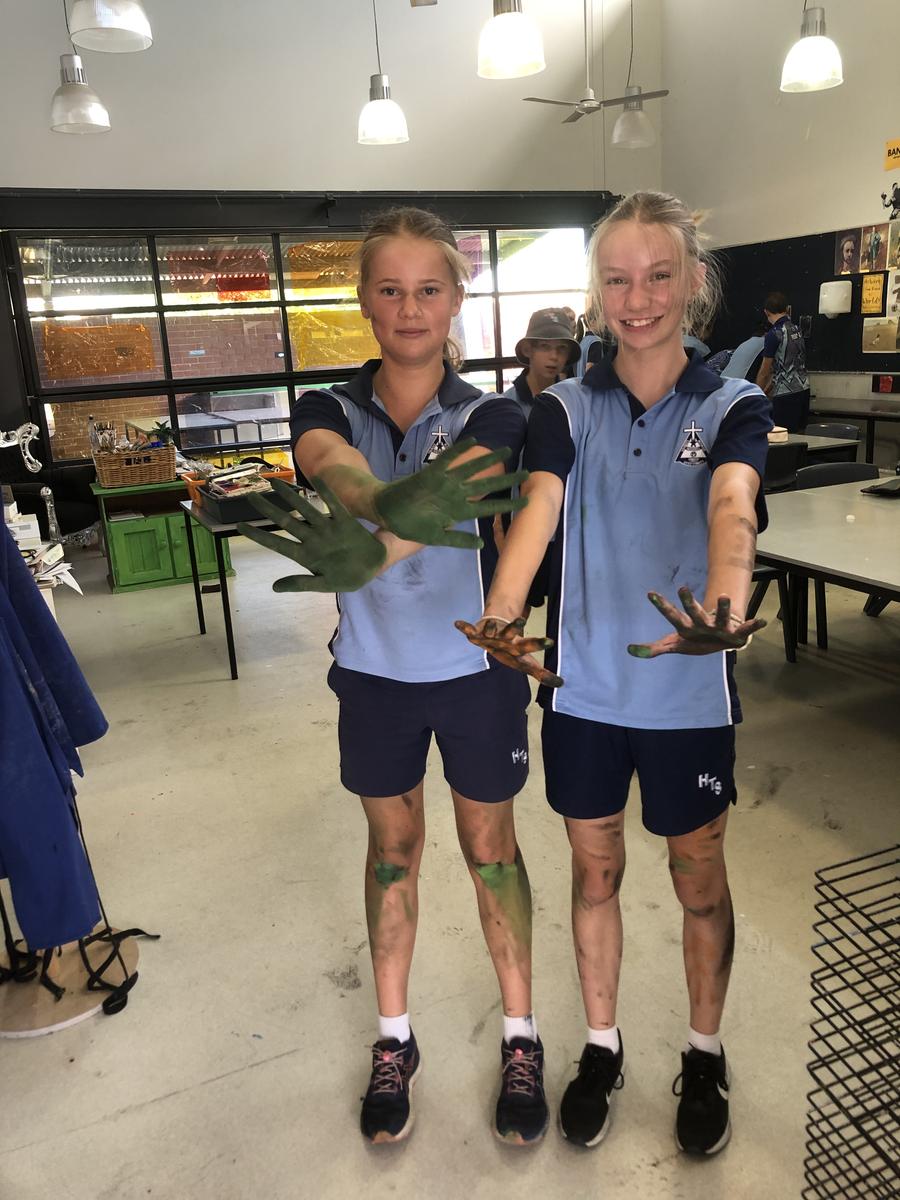


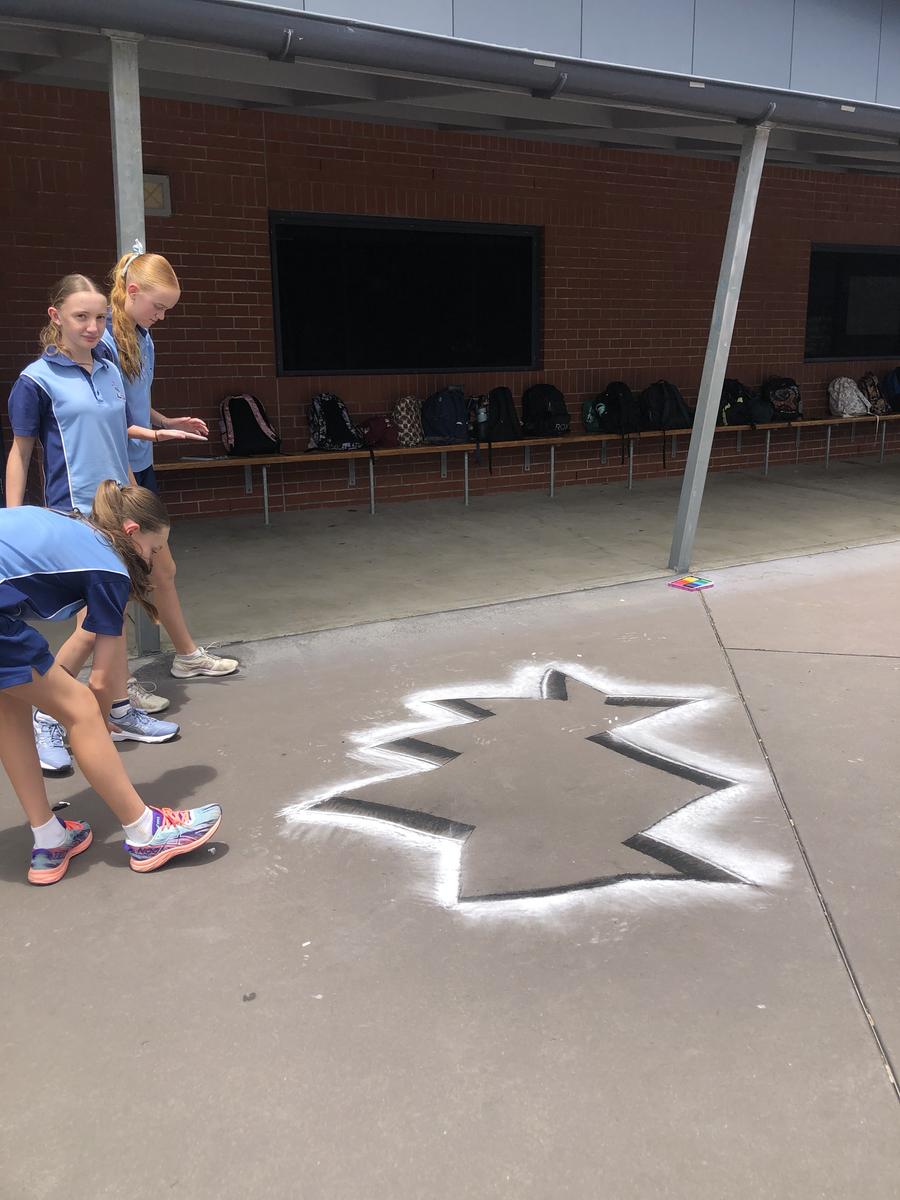
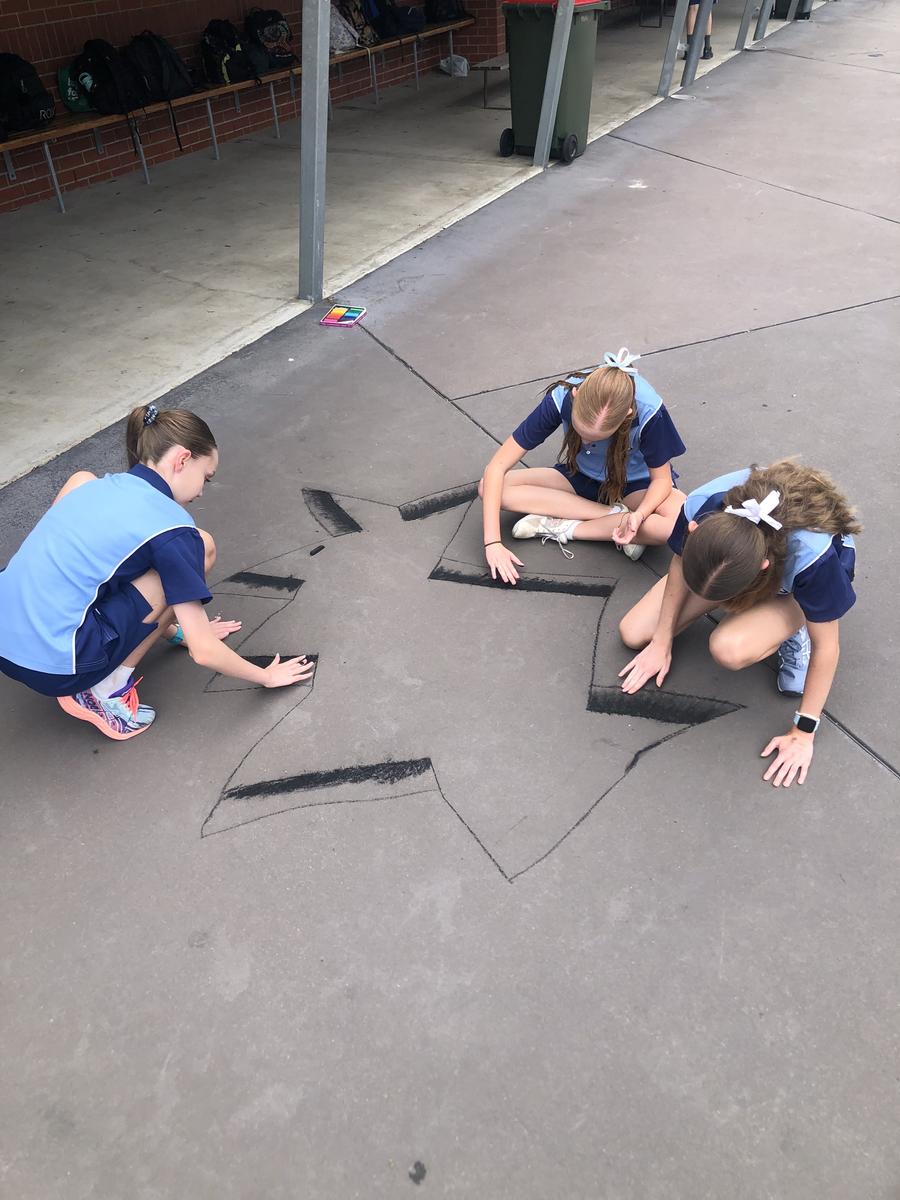
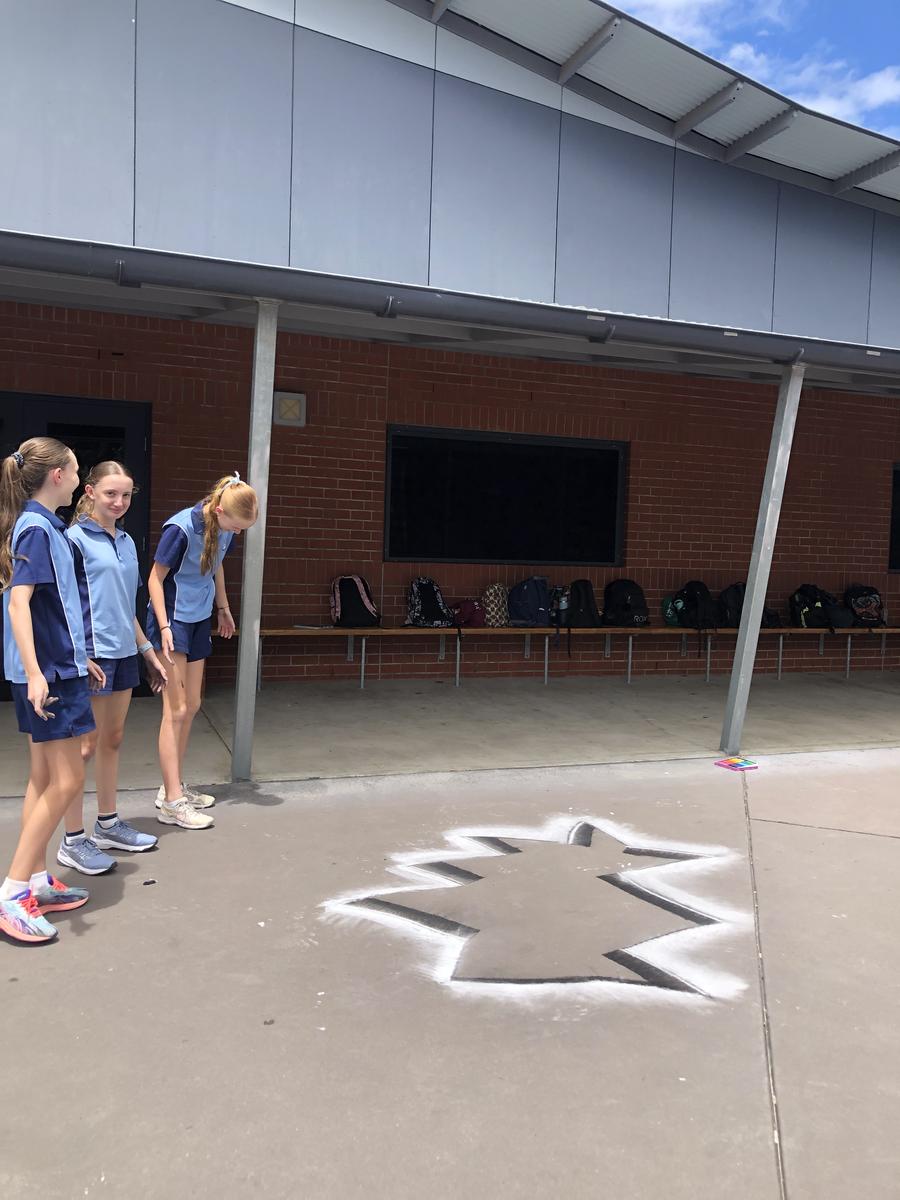
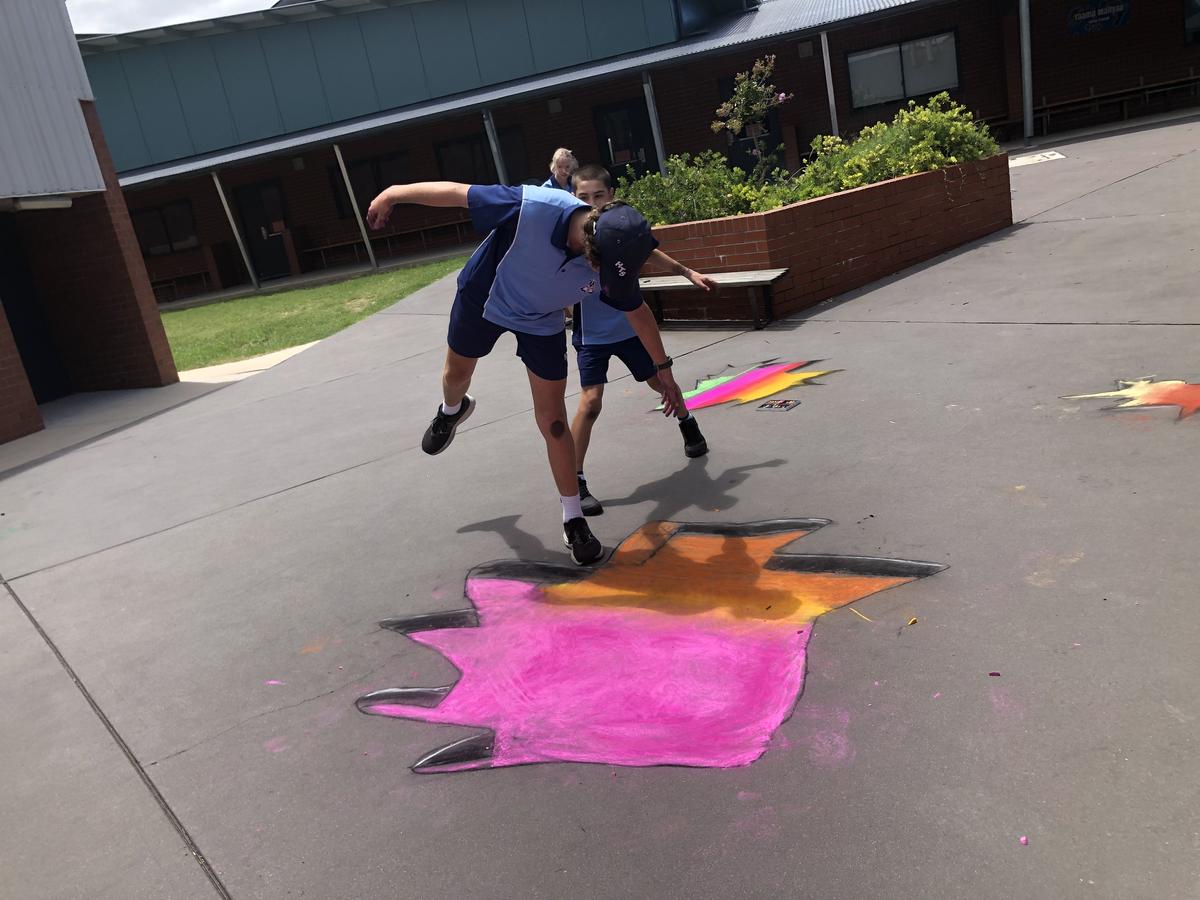
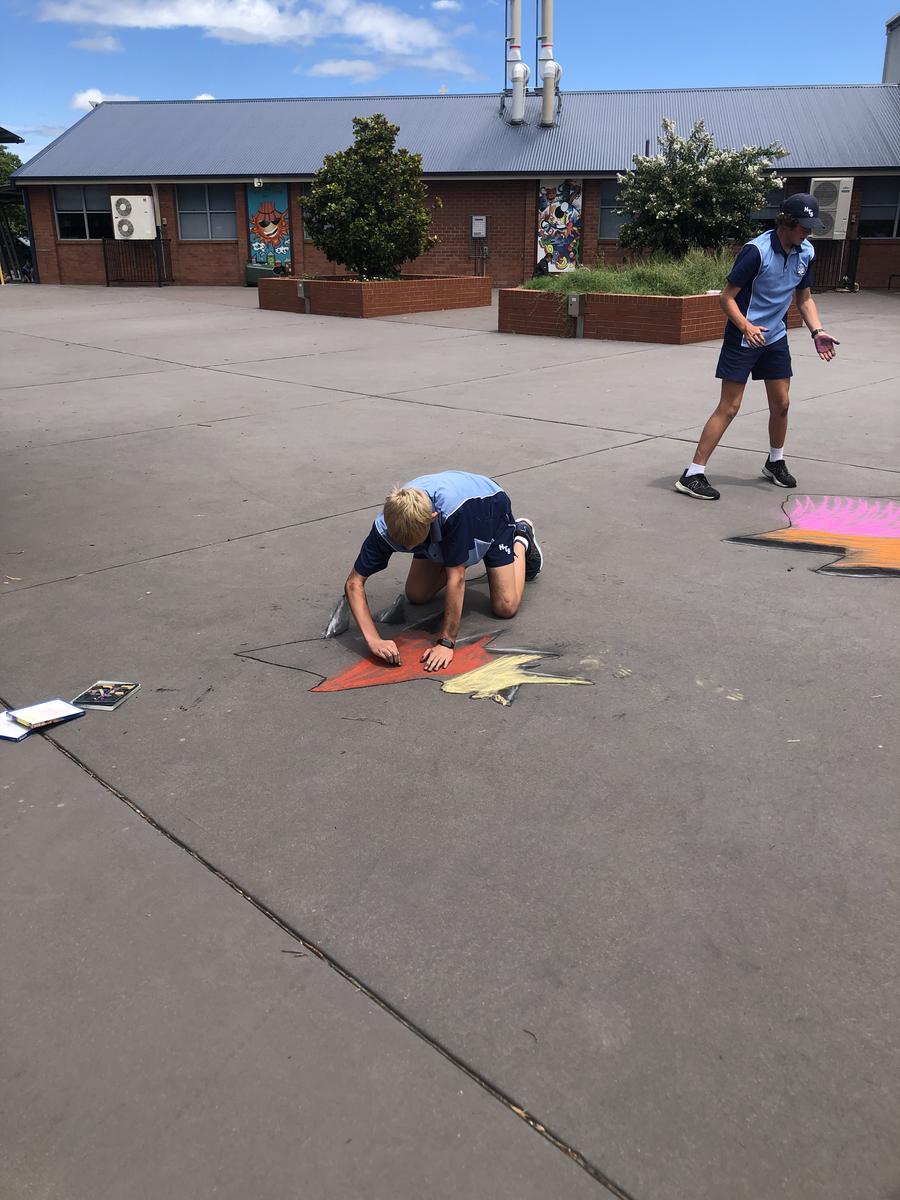
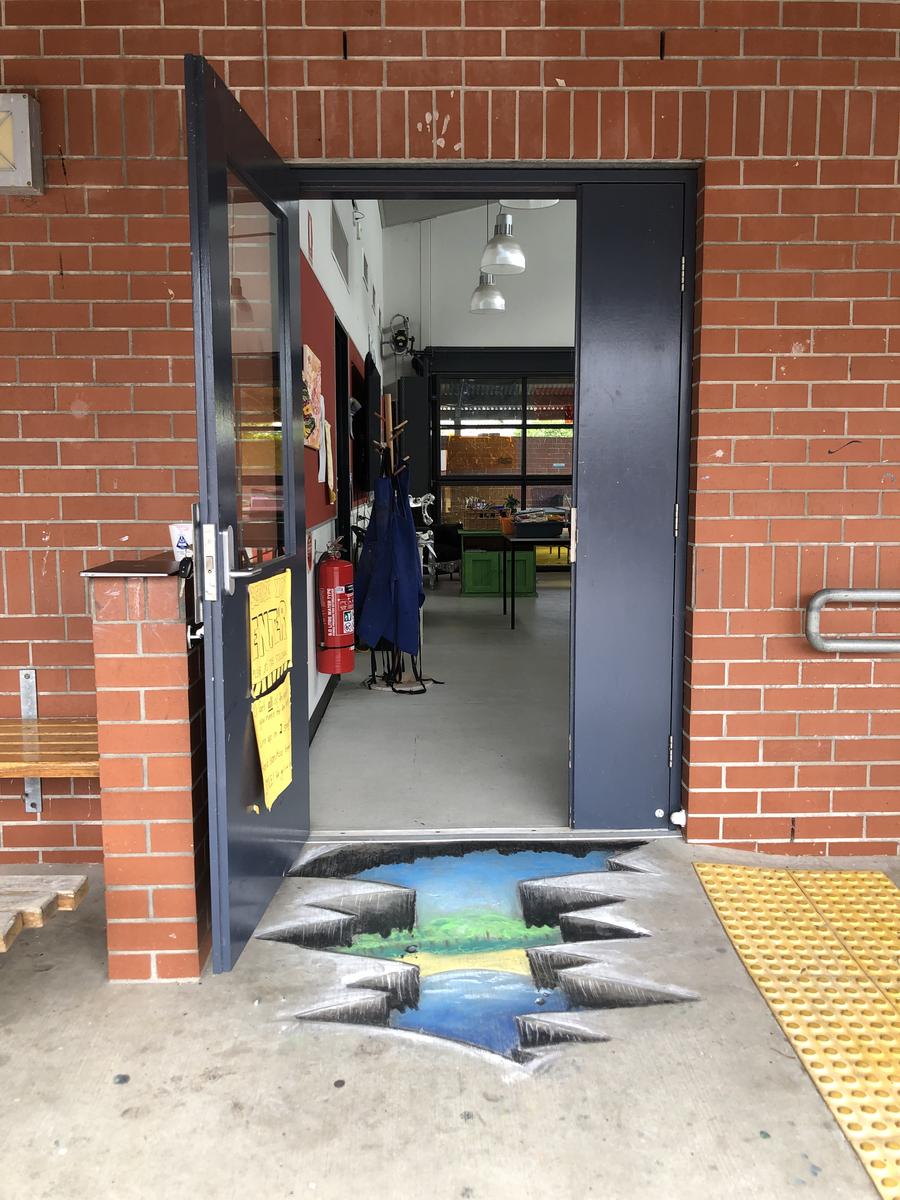
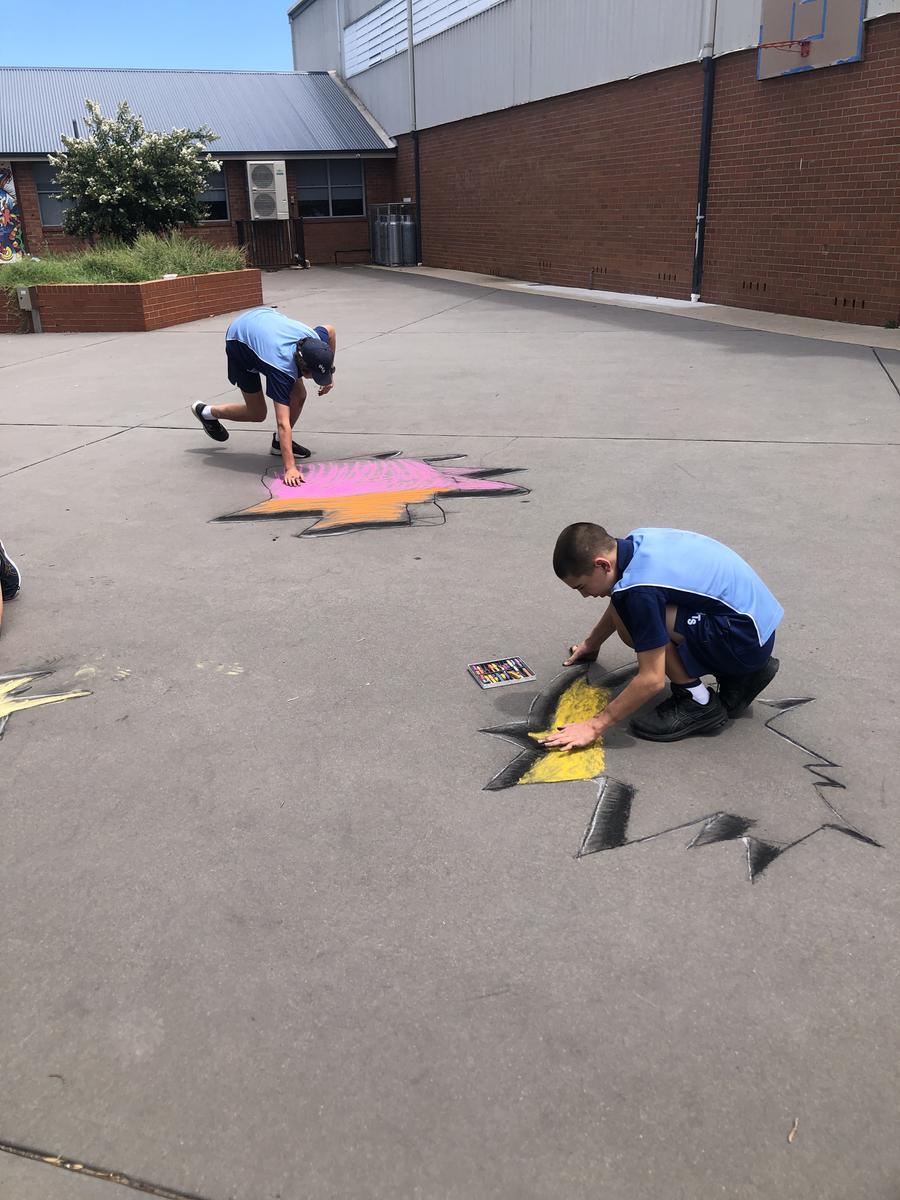

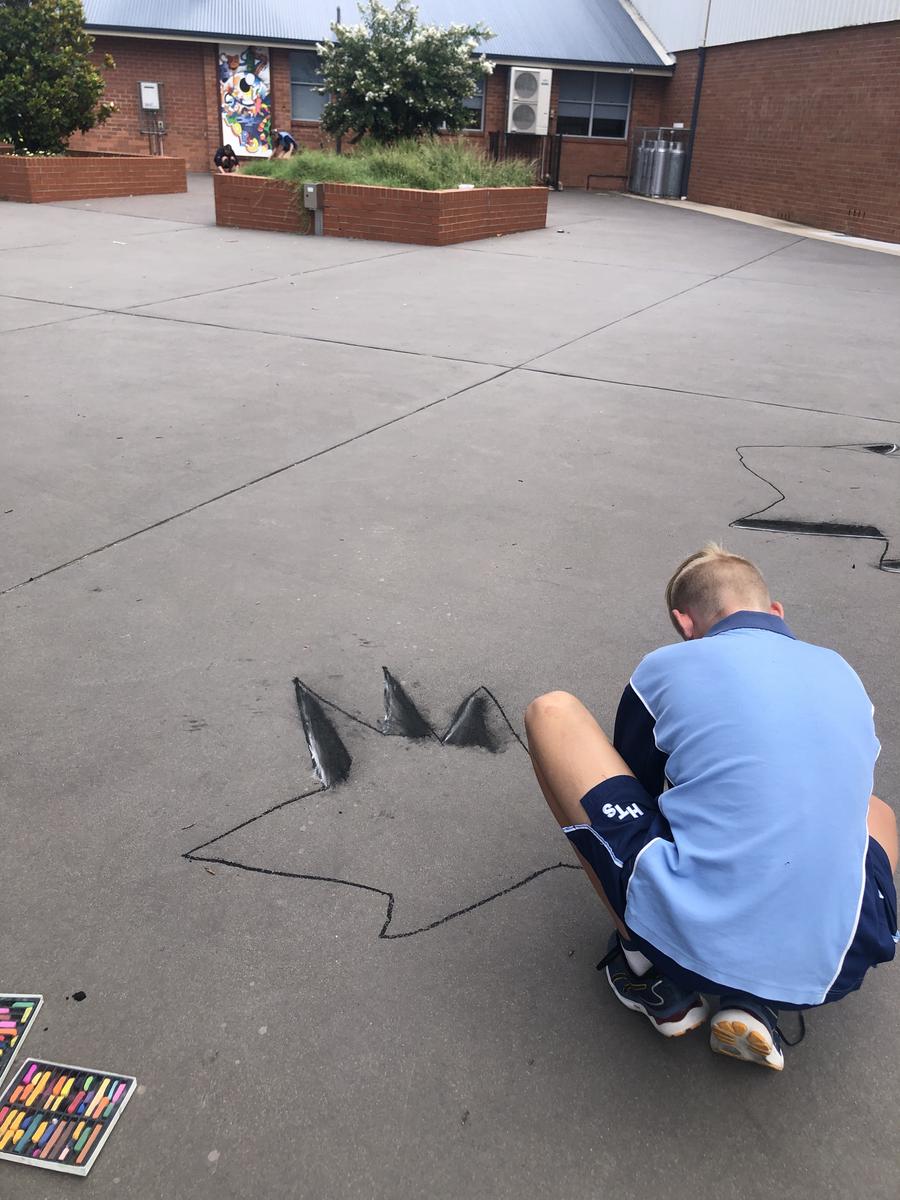

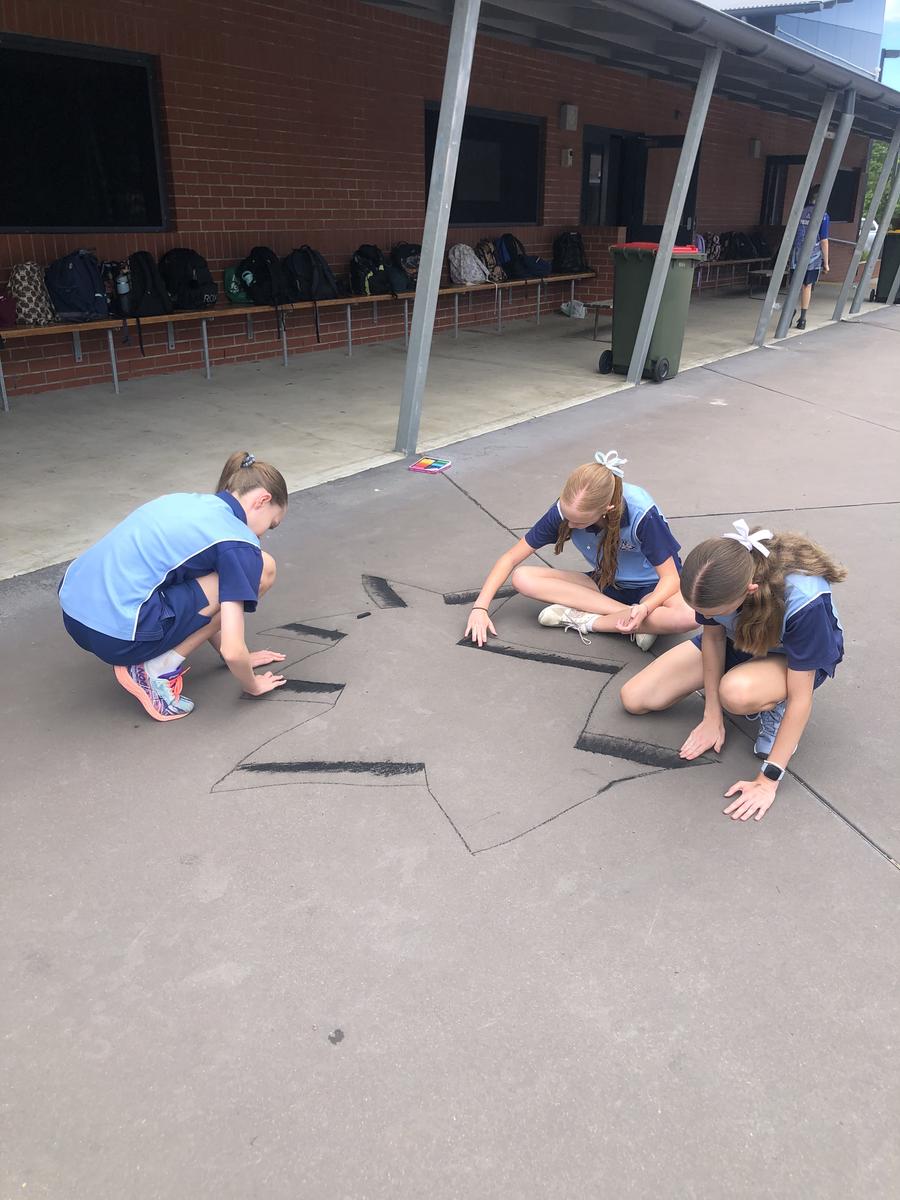
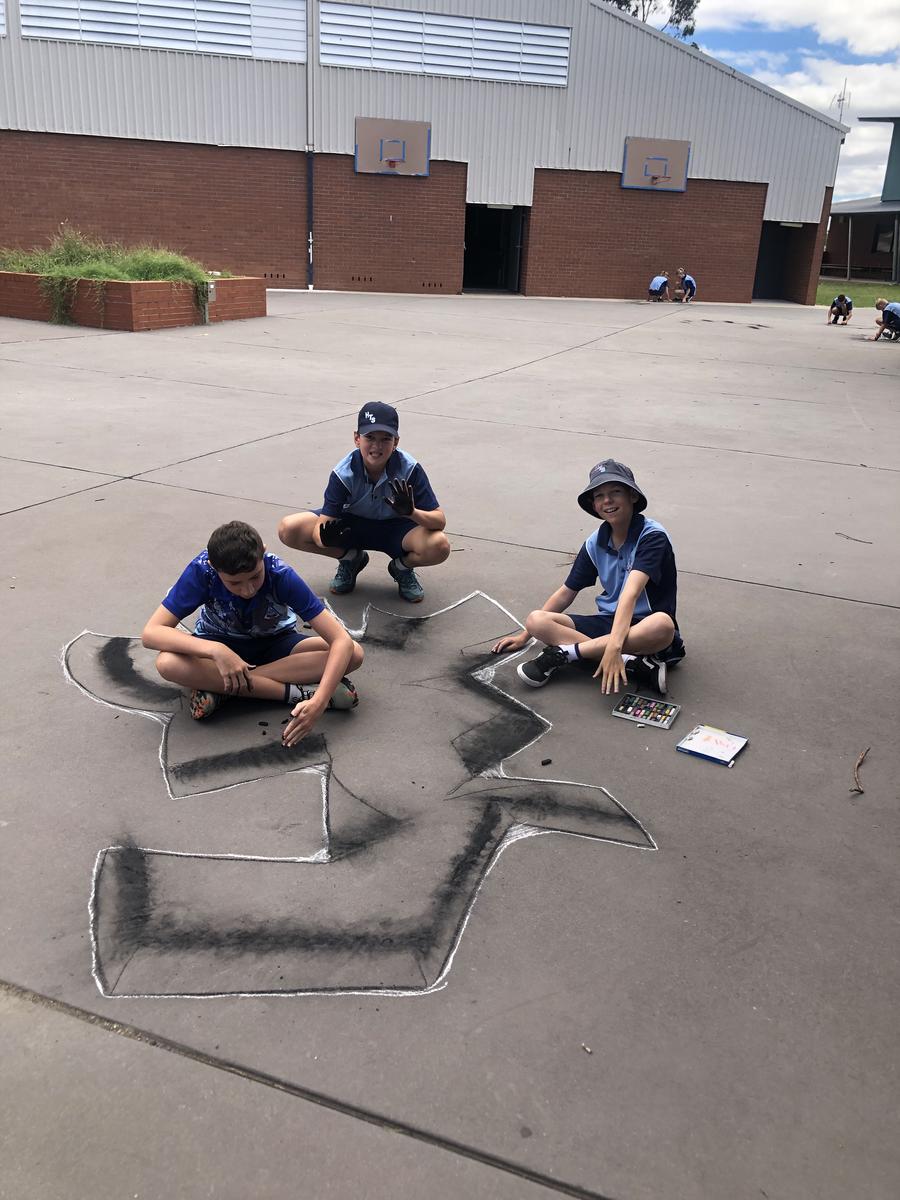

























In 2024 the following vaccines will be offered:
In Year 7, students are offered free vaccines for diphtheria-tetanus-pertussis (dTpa) and human papillomavirus (HPV). In Year 10, students are offered the meningococcal ACWY vaccine.
If your child is in Year 7 or Year 10 this year, you can now provide online consent for their routine school vaccinations.
Vaccination will only be provided at school if consent has been received.
How to provide consent:
If you or your child do not have a Medicare card, consent can still be provided by requesting a paper-based consent form directly from your child’s school.
The benefits of providing consent online:
• easily update your child’s details
• receive SMS and/or email notifications when vaccinations are given
• faster upload of vaccination records to the Australian Immunisation Register (AIR).
For more information on routine school vaccinations, please visit
www.health.nsw.gov.au/schoolvaccination.
If you require information in your language, please visit:
www.health.nsw.gov.au/immunisation/Pages/school_vaccination_language.aspx
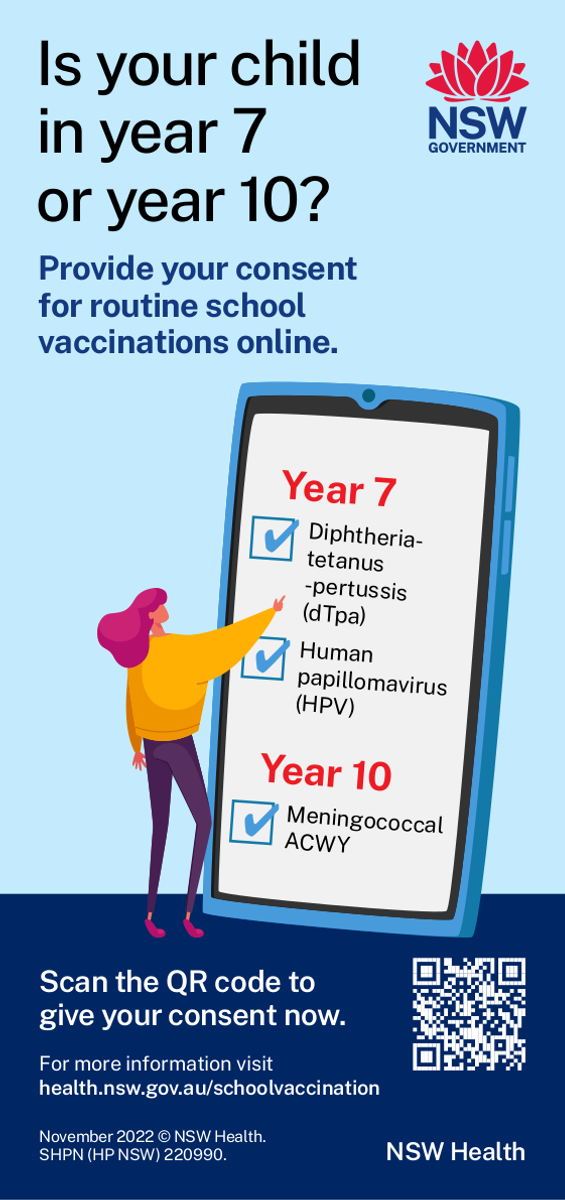

Transition to Year 7 Assessment is an online assessment for students that helps provide information for teachers on the literacy and numeracy skills of students at the beginning of Year 7.
The assessment covers key literacy and numeracy skills that are important to a student’s success in all subjects in high school. Students come to high school with a range of experiences, skills and abilities in literacy and numeracy. It is important that teachers have current information about their students so that they can plan programs and lessons that best support the learning needs of every student.
The Transition to Year 7 Assessment will be completed at school during class time and will take place between Weeks 4 and 6, Term 1. Mr Koch will be coordinating and supervising the testing.
No preparation is needed for this assessment. Its purpose is to provide our teachers with additional information to best support the teaching of your child. The Transition to Year 7 Assessment is just one of a range of assessments the school uses to assess students.
Students will be asked to bring headphones or earbuds that plug into a computer to enable them to hear audio during the assessment.
Please contact the school if you have any questions regarding the Transition to Year 7 Assessment.
Year 7:
7E - Mr Peter Ehsman
7J – Mr Jack Jeffery
7K - Miss Kristina Majetic
7M – Mrs Veronica McCormick
Year 8:
8G - Mr Anthony Gaias
8M - Mrs Christine McLachlan
8T - Mrs Kathy Townsend
8W - Mr Sam White
Year 9:
9C – Miss Claudia Cush
9E - Mrs Angela East
9U - Mr Uebergang
Year 10:
10B - Miss Kim Bailey
10K - Mr David Koch
Students and parents are encouraged to approach the relevant Pastoral Care teacher if they need assistance.
Stage Leaders
Stage 4 - Mr Anthony Gaias
Stage 5 - Mrs Angela East
Miss Kim Bailey
Miss Claudia Cush
Mrs Claudia Dolbel
Mrs Angela East
Mr Peter Ehsman
Mr Anthony Gaias
Miss Alana Goldman
Mrs Mary-Jane Guest
Mrs Malynda Hiscock
Mr Jack Jeffery
Mr David Koch
Miss Kristina Majetic
Mrs Veronica McCormick
Mrs Christine McLachlan
cmclachlan@arm.catholic.edu.au
Mr Matthew Pye
Mrs Jane Taylor
Mrs Katherine Townsend
Mr Blake Uebergang
Mrs Carrie Watchirs
Mr Sam White
Staff can be contacted directly using the email address above or via the Compass portal.
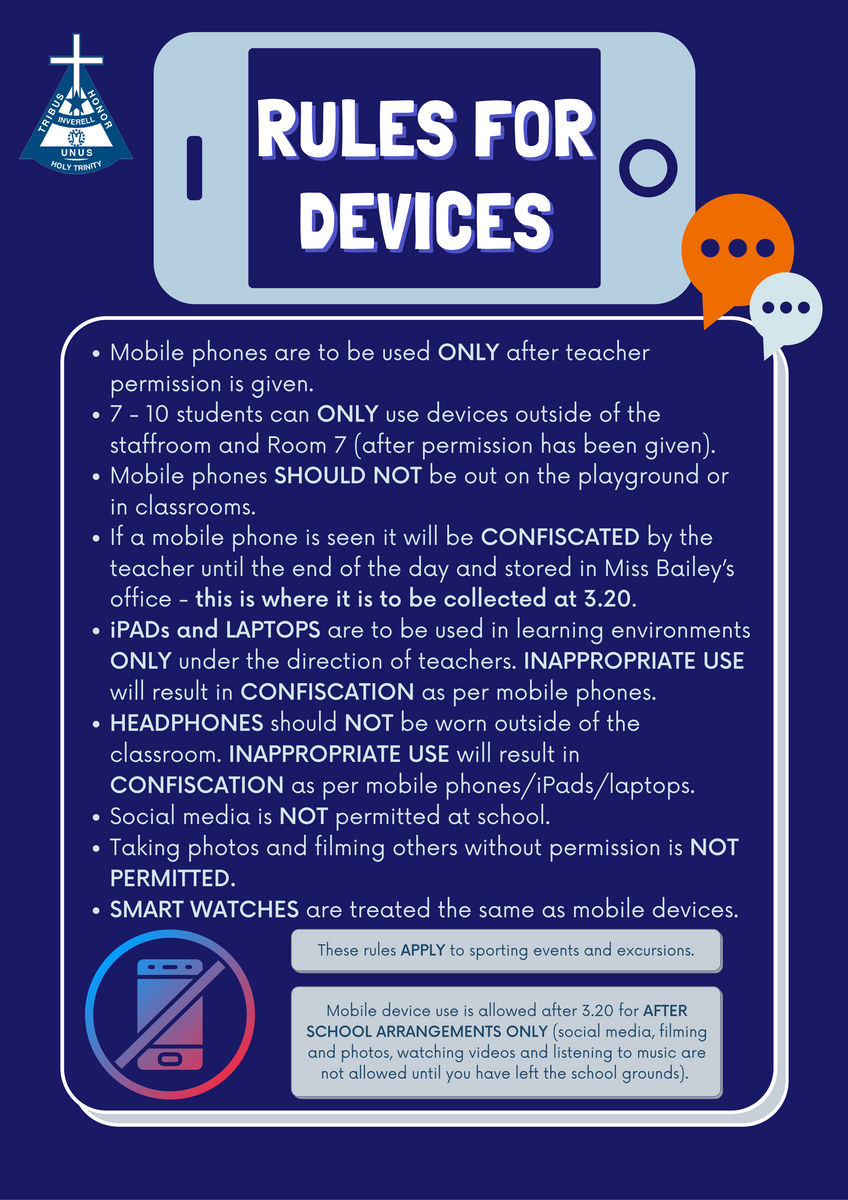

Students are not permitted to use their devices unless instructed by a teacher. This includes both the classroom and the playground. The students are aware of this policy and receive constant reminders in Pastoral Care, their teaching classes and there are also many posters displayed all around the school.
If a student needs to use their device, they must first seek permission from a teacher and use it in an area designated by the teacher. This is usually under their direct supervision or outside the Secondary staffroom.
If students are unable to follow this policy, then their phone is confiscated and placed securely in Miss Bailey's office, where it is collected by the student at the end of the school day.
Teachers record each time a device has been confiscated. After the device has been confiscated for a second time, the device remains at school until it can be collected by a parent/carer.
Conversations were held last year with SRC members, parents and staff and as a result, there have been some changes to the presentation expectations for students.
Uniform is a part of being Ready2Learn and staff are happy to assist if required. It is expected that all students will have made themselves and their families aware of the changes and any issues will be sorted out by the beginning of Week 6.
Haircuts should be neat and of natural colour. Unacceptable styles include but are not limited to motifs cut into the hair, dreadlocks, cuts under Number 2 blades, rat tails and unnatural colours. Hair that is shoulder length or long enough should be tied back for safety reasons. Hair accessories such as ribbons, scrunchies, headbands, etc. should be discreet and in the school colours of blue or white.
Jewellery
Should be kept to a minimum
Unadorned plain stud earrings - no more than 3 per ear.
A discrete nose piercing - stud only, rings not permitted.
A simple chain such as a sacramental crucifix worn under the uniform
One bangle/bracelet/ring/watch
Other visible body piercings or tattoos are not permitted.
For safety reasons, students may be asked to remove jewellery for physical education and other practical activities; therefore, it should be kept to a minimum and preferably not worn on sports days.
Nails/Makeup
Makeup should be minimal and natural only.
Nails should be short and natural polish only (this also includes artificial nails).
Shoes
All students are required to wear enclosed black leather or strong vinyl school shoes. Shoes should have substantial soles (i.e., a thumb tack would not cause injury to the wearer). Shoes should have laces or a buckle or a similar mechanism. Riding boot-style black boots are acceptable in the early years. High-top shoes are not acceptable. Slip-on shoes such as ballet flats and canvas shoes are not acceptable. On sports days, students are required to wear supportive sports shoes. They should have laces or a similar mechanism.
Socks
Plain grey and plain white ankle socks (no logos or motifs) are acceptable except on formal school occasions, such as school representation and school photos.
Uniform is monitored regularly by class teachers, Pastoral Care teachers and the Leadership Team. A dated note from families is required if a student is not in the correct uniform advising when the uniform will be able to be rectified. This is to be given to the Pastoral Care teacher (Secondary) in the morning.
Where the school is able to assist, we will endeavour to help the student correct the uniform, e.g., provide an elastic hair band, provide a container for excess jewellery, and give a spare school outerwear garment.
Consistent infringement or major breaches will result in families being contacted and students may:
The school will endeavour to work with families to keep the standard for uniform and presentation high.
Please contact Mrs Rainger if you have financial difficulties in relation to the uniform.
Part-time work is increasingly becoming an important part of many student’s lives. This article is aimed at increasing your awareness of both the advantages and dangers of part-time work for your child. A Tamworth school survey conducted recently found that about 70% of students in Years 10 to 12 had some form of part-time work. Of those students with jobs, around 30% worked 15 to 20 hours a week. This is a highly alarming figure as school students already put in 35 hours at school – and this does not include the expected out-of-school time required for study, homework and assignments.
Part-time work provides students with valuable lessons in work ethics, professionalism, managing money and developing independence. Many jobs also inadvertently provide students with greater social connections and experiences. Part-time work can also be a good way to develop potential work skills, connections and references. For parents, it can provide some relief to the ever-increasing financial demands that teenagers place on the family budget.
The dangers of part-time work start to be noticed as the hours of work increase. School hours and holiday periods have been set generally because they are considered optimum for the learning, rest and play requirements of developing children and adolescents. Puberty is the second biggest time of physiological growth in a human’s lifespan. Fluctuating energy levels, mood swings, changing sleep requirements, as well as cognitive, emotional, social and physical development are all major elements that should be considered by parents, teachers and possibly employers, when caring for our youth.
Please ask yourself the following questions:
If you have answered “yes” to any of these questions, you will probably become aware of the gradual, cumulative cost that part-time work may have on your child’s general wellbeing and on potential educational and career outcomes.
What are your hopes and expectations for your child in regards to their education – both school and general life learning? Is their present lifestyle allowing this to come to fruition or hindering it?